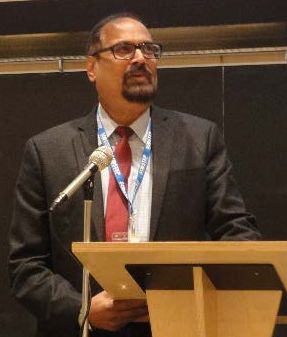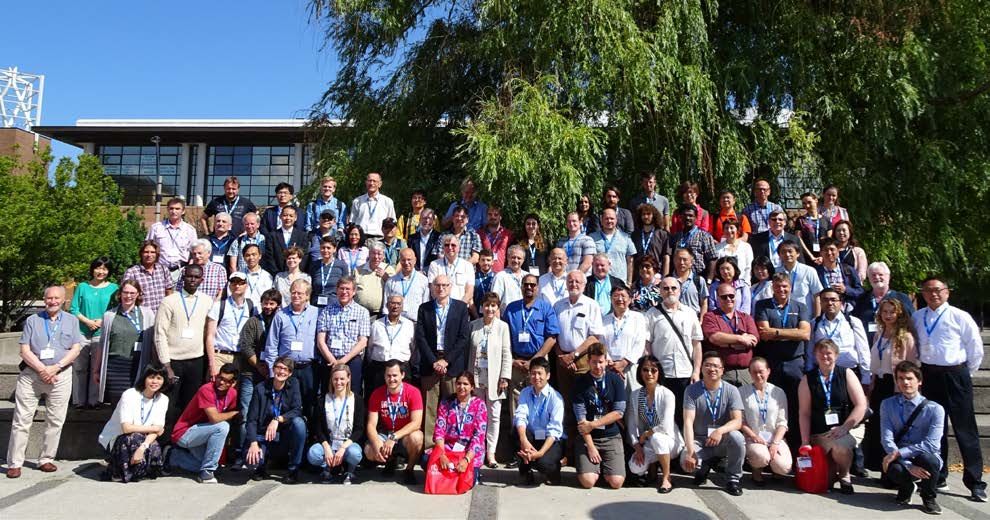
REPORT on
SCOSTEP Newsletter 20
14th Quadrennial Solar-Terrestrial Physics Symposium
 SCOSTEPís President
SCOSTEPís PresidentNat Gopalswamy
 Group photo of some of the participants in STP14
Group photo of some of the participants in STP14SCOSTEPís 14th Quadrennial Solar-Terrestrial Physics Symposium (STP14) was held during July 9÷13, 2018, at York University, Toronto, Canada. The Symposium gathered 150 scientists from 26 countries, Austria, Brazil, Bulgaria, Canada, China, the Czech Republic, Finland, France, Germany, Georgia, Greece, Hungary, India, Italy, Japan, Korea, New Zealand, Nigeria, Norway, Poland, Russia, Spain, Switzerland, Taiwan, the UK, and the USA, to discuss the detailed relationships of the Earth to the Sun. The event was sponsored by the Centre for Research in Earth and Space Science (CRESS) with support from the Lasson de School of Engineering (LSE) of York University, SCOSTEP, the USAís National Science Foundation, the Core-to-Core Program of the Japan Society for the Promotion of Science, the Project for Solar-Terrestrial Environment Predictions, Japan, and the International Association of Geomagnetism and Aeronomy (IAGA).
The program included 120 oral presentations and 39 posters organized in 14 sessions with 4 keynote speakers, 25 invited speakers and 8 plenary speakers. Keynote presentations were given by David Kendall (UNCOPUOS, Canada), Larry Paxton (Johns Hopkins Uni., Atmospheric Physics Laboratory, USA), Irina Mironova (St. Petersburg State Uni., Russia), and Spiro Antiochos (NASA Goddard Space Flight Centre, USA).
The Symposium program, Abstracts book and the presentations can be found on line at the STP14 website: http://www.scostepevents.ca/. A special journal issue based on the STP14 presentations will be published in due course.
At the opening session the attendees were welcomed by the SCOSTEP President, Nat Gopalswamy (NASA), Regina Lee (Associate Dean, Research & Graduate Studies, Lassonde School of Engineering, LSE), James Whiteway (Director, CRESS), and Eric Lalibertť (Canadian Space Agency), followed by inaugural lectures on the history of Solar-Terrestrial Science in Canada by David Boteler (Natural Resources Canada, NRCan) and highlights of the VarSITI (Variability of the Sun and Its Terrestrial Impact) program within SCOSTEP, by the Programís Co-chair Kazuo Shiokawa (Nagoya University, Japan).
Local organization, including registration and the audio-visual support was carried out with the help of graduate students and Post-Doctoral Fellows from the Lassonde School of Engineering. Attendees varied from distinguished scientists in the field to graduate students. A portion of the registration fee paid by the attendees was made available to support early career scientists and graduate students, thus providing a broad spectrum of experience. The event was widely praised by the attendees for the compact and friendly environment provided by the York University setting. In addition, the registration, accommodation and operational procedures were more personal than would otherwise have been the case.